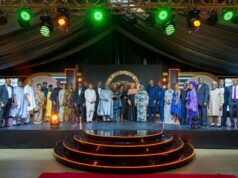THU, 11 AUGUST 2016-The contour of Nigeria’s recent capitulation as Africa’s largest economy is sadly familiar, oil price fall and the consequent collapse of the currency. And so the suggestion that Nigeria faces a bright future in the near to medium-term is a little more than semantics to investors who already are running out of patience with the snail pace of response to the economy’s dwindling fortunes.
The question now is whether policy makers clearly understand what this toppling means and the immediate steps to take to begin the climb back.
South Africa edged past Nigeria to top the ranking as Africa’s largest economy after the International Monetary Fund, IMF, recalculated the countries’ gross domestic products, GDP. The IMF figures put South Africa ahead at $301 billion based on GDP as at the end of 2015. Nigeria came in behind at $296 billion on the strength of the naira which has since lost two thirds of its value since it began its free fall when it weakened 20 percent against the dollar in the six months to March 2015.
“Of course it is merely statistical but it says very clearly also that Nigeria is grossly underperforming and it means investors will look first now to South Africa before Nigeria because the ranking says that their fundamentals are stronger than Nigeria’s just as they put Nigeria first in their shopping list when the country was number one,” says Clement Ofuani, a chartered accountant and current director general of the Delta State capital development agency. “And can we do anything about it? Yes we can,” he added.
He said the first major step which may not be for short gain, is to begin with reorganising the polity to fully realise the true potential of the economy. He said that should include political reforms which must be comprehensive and far reaching. He suggested that nepotism at the central seat of power in the country must be reversed to stem the persisting arms resistance from different parts of the country.
“There is a direct connection between the security challenges that has dogged the country for long and uncertainty in the economy which is evident in the frequent changes in policy and the impact on foreign direct investments as well as local investments.” He said the uncertainty is impossible to imagine.
Some analysts also told G&BJournal that unless the policy makers end their violation of budgeting rules, which should outline timetables and targets for public spending, it will be difficult to see a refreshing result or hope.
The analysts were especially critical of the mess that the ‘budget padding’ scandal has done to the 2016 budget and government spending policy for the year and refers to it as a crisis and as an example of some of the mistakes that led to current financial and economic crises.
Only a handful of Nigerians, including Aliko Dangote, the continents richest person, are offering assurances after the IMF report that Nigeria is still an economic force to reckon with-but investors and business leaders say they remain worried.









